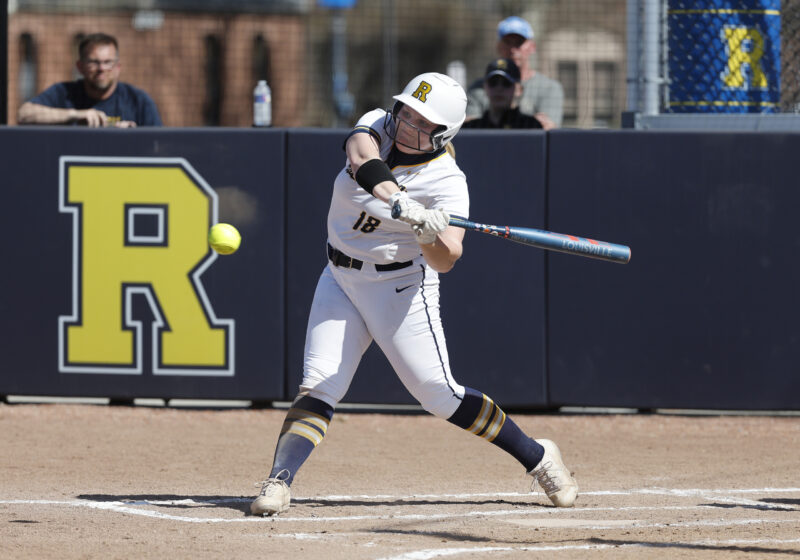Consider yourself a YouTube junkie? Here’s a challenging question: What is the most watched news channel on YouTube? Not CNN, not Fox News, not the BBC, but Al Jazeera. Shocked? Embarrassed to admit that your last search was Lady Gaga’s new single and not Al Jazeera’s coverage of Libya?
With an audience of 220 million households on six continents in more than 100 countries, the English version of Al Jazeera News was launched in 2006 after the success of the Al Jazeera Arabic Channel and is the first international English language news channel to broadcast across the globe from the Middle East. The Arab owned network has 3,000 staff members, including 400 journalists from 60 different countries, and broadcasts from London, Washington, D.C., Doha and Kuala Lumpur.
Yet, if your viewing of Al Jazeera is minimal, you’re not entirely at fault: Al Jazeera English is carried by only one satellite service and almost no cable networks in the U.S. except local networks in Toledo, Ohio and Burlington, Vt. The Student Association for the Development of Arab Culture Awareness at UR (SADACA) has therefore taken up the pertinent campaign to get the network broadcast on mainstream U.S. cable networks.
Public opinion on the topic has been centered — in part due to U.S. media — on the sentiment that Al Jazeera is biased and staunchly anti-American, and that the network has declared a lack of American interest as their justification for scant attention on major networks; SADACA is looking to dispel these myths.
SADACA, a group that cites themselves as “apolitical and secular,” describes their mission as “promoting awareness of the culture, religions, history and languages of the Arab world through positive community education and enrichment.”
The group has joined forces with Caitlin Simpson, a senior international relations and anthropology double major whose interest in the Middle East grew by her extensive study of Arabic both at UR and during a semester in Jordan. She discovered the Al Jazeera network while abroad and did not realize that it was so difficult to watch the network in the U.S. until her return.
In partnership with SADACA, she aims to increase awareness of the need for Al Jazeera coverage in the U.S. through screening documentaries on campus and promoting the Al Jazeera site, where people can send e-mails to cable providers in their area to lobby for greater coverage.
“Al Jazeera has shown an incredible ability not just to cover events in the Middle East as an objective source, but to get into the underground of what is happening—not just reporting but reporting as one Egyptian to another Egyptian,” Simpson said. “Al Jazeera presents the story without qualifications like the mainstream U.S. media, who often preface stories with an element of surprise that Middle Eastern cultures are actually educated and capable of positive change.”
In light of recent events in the Middle East, numerous U.S. newspapers have lauded Al Jazeera’s coverage for its extensiveness and comprehensibility. On Feb. 22, for example, the site’s home page featured coverage not only of Qadaffi and the Libyan crisis, but also of the earthquake in New Zealand, the Cricket World Cup and the North Korean film industry. The New York Times ran an opinion piece this month in which columnist Nicholas Kristoff wrote, “It was Arab satellite television broadcasts like those of Al Jazeera that broke the government monopoly on information in Egypt. Too often, Americans scorn Al Jazeera (and its English service on few cable systems), but it played a greater role in promoting democracy in the Arab world than anything the United States did.”
Al Jazeera argues that there is indeed a market of U.S. news consumers, as evidenced by a recent dramatic surge in YouTube hits and website viewing. UR’s SADACA is currently supporting the network’s lobbying campaign to expand U.S. accessibility to their coverage.
“It’s a valuable network,” said Professor of Arabic Language and Literature Daniel Beumont. “Many of my colleagues are exclusively watching Al Jazeera as events unfold in the Middle East. They’ve been way out in front of other networks on events in Egypt.”
Beaumont said that he felt the correspondents and journalists from Al Jazeera were far more knowledgeable than their American counterparts on the Middle East and willing to portray American aggression in the region, unlike U.S. media networks. He also said that he thinks Al Jazeera has been crucial in knitting young people together into a cohesive movement by renewing and fostering Arab identity and political involvement in people under 30, something that he feels is lacking in apathetic American youth.
“I absolutely think it should be broadcast here,” junior Tamar Negri, co-president of the Israel Council said. “So many people in the U.S. get news from only one voice instead of from an international perspective, which Al Jazeera can provide.”
But is Al Jazeera biased?
“Yes and no,” said Beaumont. “In the case of all the uprisings and revolutions, they’re clearly sympathetic. I don’t think there is any news organization that doesn’t have an agenda. Al Jazeera is better than any American network. Fox News is right wing propaganda. [Al Jazeera] is more objective on the Middle East than CNN. Their news is the point of view of Arabs — if you want to call that a bias, you can, but simply the act of choosing what is news shows a bias.”
“I don’t think they have an ideological perspective or any nationalistic filtering,” Simpson said. “They’re sympathetic but in a tactful way — they’re not putting words in anyone’s mouth or forcing an agenda on the protestors but rather giving them an ear.”
She believes that the market exists in this country and that the American people should have the option when selecting a news channel to watch.
“Why not?” said Patrick Kahn, a graduate student in the Political Science Department. “A vivid democracy requires plurality of opinions and voices, and Al Jazeera provides at times a different view on issues. Nobody has to watch it if they don’t want to, and time will tell whether Al Jazeera finds an audience in the US or not.”
SADACA hopes that by promoting awareness of a network that broadcasts Middle Eastern news, they can promote greater awareness of Arab culture on campus and in the U.S. and help to banish the Arab stereotypes that plague American media.
Buletti is a member of the class of 2013.





